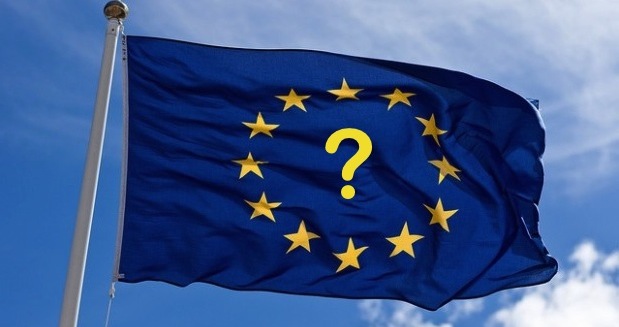
Whatever happened? (Part I)
From Jeff Fountain’s book Deeply Rooted.
Today’s European Union continues to attract member states, has replaced violence by dialogue and upheld peace for nearly seventy years. Yet few would claim that it lives up to Schuman’s original dream of a ‘community of peoples deeply rooted in Christian basic values’. Whatever happened to that dream?
The overwhelming trend in Europe over the past seventy years has clearly been one of secularisation, and that has been reflected in the general tenor of EU policy-making. Biblical values have been considered by many to be outdated, quaint, passé and irrelevant. Secularists assumed that religion was doomed to die slowly on the sidelines as Europeans grew more enlightened.
That assumption, however, has proved to be ill-founded. Now the term ‘post-secular’ is being used increasingly to describe our times. God and religion are making a comeback onto the European scene, a subject of much recent debate in the media. Islam’s renewed presence in Europe has been but one factor causing the debate on religion and politics to resurface.
A brief survey of the development of the European Union since 1950 will help us understand what happened to the dream.
I. The European Union story
Schuman’s declaration on May 9, 1950, was the dramatic breakthrough that created virtually overnight the conceptual architecture of the European House within which half a billion Europeans live in peace with each other today. It was a modest but concrete step, embryonically containing the elements that would be expanded eventually into today’s EU. After much negotiation and consultation, the European Coal and Steel Community was signed into existence through the Paris Treaty on April 18, 1951. France, West Germany, Italy, Belgium, Luxemburg and The Netherlands were the founding members.
The institutions established by the Paris Treaty are still the four pillars of the EU today: The High Authority (now the European Commission), the Council of Ministers, the Common Assembly (now the European Parliament) and the Court of Justice.
The initial success of this venture led to the expansion of cooperation among the member states into the European Economic Community (EEC), at the Treaty of Rome in 1957; or more correctly, the Treaties of Rome. For at the same time, treaties were signed for cooperation in developing nuclear energy, the European Atomic Energy Community (Euratom) and for a customs union.
Behind these developments, French initiative continued to play a key role. This is all the more remarkable given the volatile nature of the contemporary French political scene, with communist and Gaullists agitating on both extremes, while Christian Democrats and socialists cooperated in the mid-field. Fragile pro-European majorities could be sufficiently swayed by the extremes, which led to the rejection of the proposed European Defense Community, denounced by Gaullists as ‘the only known example of the conqueror demanding and obtaining parity with the conquered’.
No sooner had the nationalist de Gaulle become president in 1958, having vigorously opposed all the European treaties, than he surprised all by promptly endorsing them. The logic of his volte-facewas that the best way to contain France’s ‘hereditary enemy’ was to embrace him.
The complex De Gaulle continued to baffle his European colleagues, simultaneously acting as the most pro- and anti-European of his time. In the 1960s, his commitment to deepen the European project fuelled his fierce opposition to widening it with British entry. The general, who never shared Schuman’s conscious Christian values, was consistently hostile to any form of supranational integration and loss of French sovereignty. While declaring support for a strong Europe, a ‘European Europe’ not controlled by America, his fear of strong European institutions caused him to weaken the decision-making process. Some blame de Gaulle for delaying the European project some twenty years, and greatly increasing europaralysis.
In 1967, the communities of the Treaties of Rome were merged into a collective identity called the European Communities, more commonly the European Community (EC), through the Merger Treaty.
Following de Gaulle in 1973, President Pompidou welcomed the first new intake of members: Denmark, Ireland and the UK. Never bosom-buddies with his leftist West German counterpart Willy Brandt, the Frenchman fell back on a balance-of-power mentality, seeing Britain as a counterweight to German influence, and sandbagging any supranational development in the community.
However, his successor, Giscard d’Estaing, renewed Franco-German relationships the following year working with Helmut Schmidt to move the community forward economically and politically. The European Monetary System was set up, linking the currencies of participating members, a first step towards the later introduction of the Euro. In 1979, voters in member states had their first opportunity to vote directly on a European level in elections to the European Parliament.
In 1981, Greece became the tenth member of the EC. That same year, the rising politician who had succeeded Schuman as Minister of Justice in 1956, Francois Mitterrand, was voted into the French presidency in 1981. Mitterrand, then over sixty years old, was to become the longest serving French president, until 1995.
Unlike Schuman, Mitterrand was happy to serve in the Vichy regime. Yet after the war he joined a French delegation to Caux, even before Schuman’s visit. One commentator described his life as ‘played out under an immense question mark’, and as a man who ‘did not accept the principle of contradiction’. Mitterrand initiated grandiose architectural monuments in Paris, such as the Grand Arche de la Défense, large enough to totally encompass Notre Dame Cathedral. In his book The Cube and the Cathedral, George Weigel interprets this ‘monument’ as a deliberate humanistic statement of the superiority of reason over faith, and reflecting a secular culture ‘downright hostile’ to Christianity. ‘European man has convinced himself that in order to be modern and free, he must be radically secular,’ Weigel writes. ‘That conviction and its public consequences are at the root of Europe’s contemporary crisis of civilizational morale.’
(The second part will be published next week)
Jeff Fountain
Director Schuman Centre

This Post Has 0 Comments